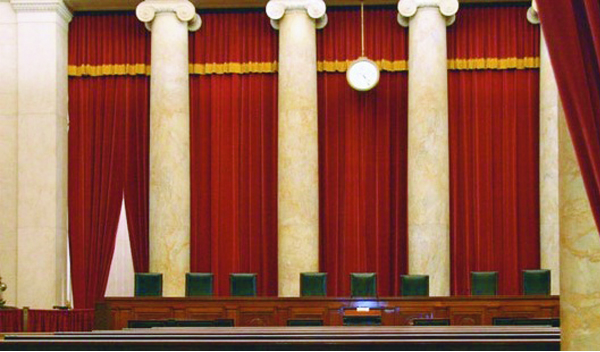FEC Commissioners Defend Agency Performance


In a rare show of public engagement, the three Republican Federal Elections commissioners authored an op-ed on POLITICO Wednesday. The op-ed served as a defense of the FEC's seeming inability to effectively investigate alleged and blatant campaign finance violations.
Meanwhile, campaign finance reformers -- or "speech regulators" as the commissioners refer to them -- like the Campaign Legal Center (CLC) have renamed the agency the, 'Failure to Enforce Commission.'
While responding to many of the criticisms raised by CLC and others in the months following the 2012 elections, Vice Chair Donald McGahn II, along with commissioners Caroline Hunter and Matthew Petersen, contend the agency is prone to inaction by design:
"When Congress created the FEC, it did not design an agency that could be wielded as a partisan weapon; instead, the agency is required to be equally divided, with, at most, three of its six members from the same party. Thus, the FEC is designed to ensure fair and impartial regulation and administration of campaign finance laws — not partisan or ideological witch hunts."
Pointing to the 'shifting' and 'uncertain' nature of the current legal landscape, McGahn, Hunter, and Peterson would prefer to err on the side of caution, rather than infringe on the First Amendment. For the three commissioners, these are the "hard truths" of protecting political speech in a universe that is encumbered with petty partisan accusations of foul play and uncertain legal boundaries.
Nevertheless, concerns of a lack of enforcement have persisted. In a letter dated May 7, Citizens for Responsibility and Ethics in Washington (CREW) and the Campaign Legal Center urged the FEC to investigate 32 alleged instances of excessive donations to federal candidates last election.
Following a Huffington Post investigation, donations well over the limit of $46,000 for candidates and $70,800 for PAC and party committees appeared to grossly conflict with well-established law, but were not being examined by the FEC.
From the letter:
"[T]he Federal Elections Commission conduct an investigation into these allegations, declare the respondents to have violated the Federal Election Campaign Act and applicable FEC regulations, impose sanctions, and take such further action... to the Department of Justice for criminal prosecution."
The investigation discovered many donors may simply not have been aware of their legal obligations, but candidates were able to benefit from over-donating anyway. Meanwhile, none of them were identified by the FEC.
A dedication to impartiality and respect for free speech are both admirable tenets, as expressed by McGahn, Hunter, and Peterson. Still, the basic function of the Federal Elections Commission -- identifying noncompliance with the law -- is one that should not require years on end to realize.



